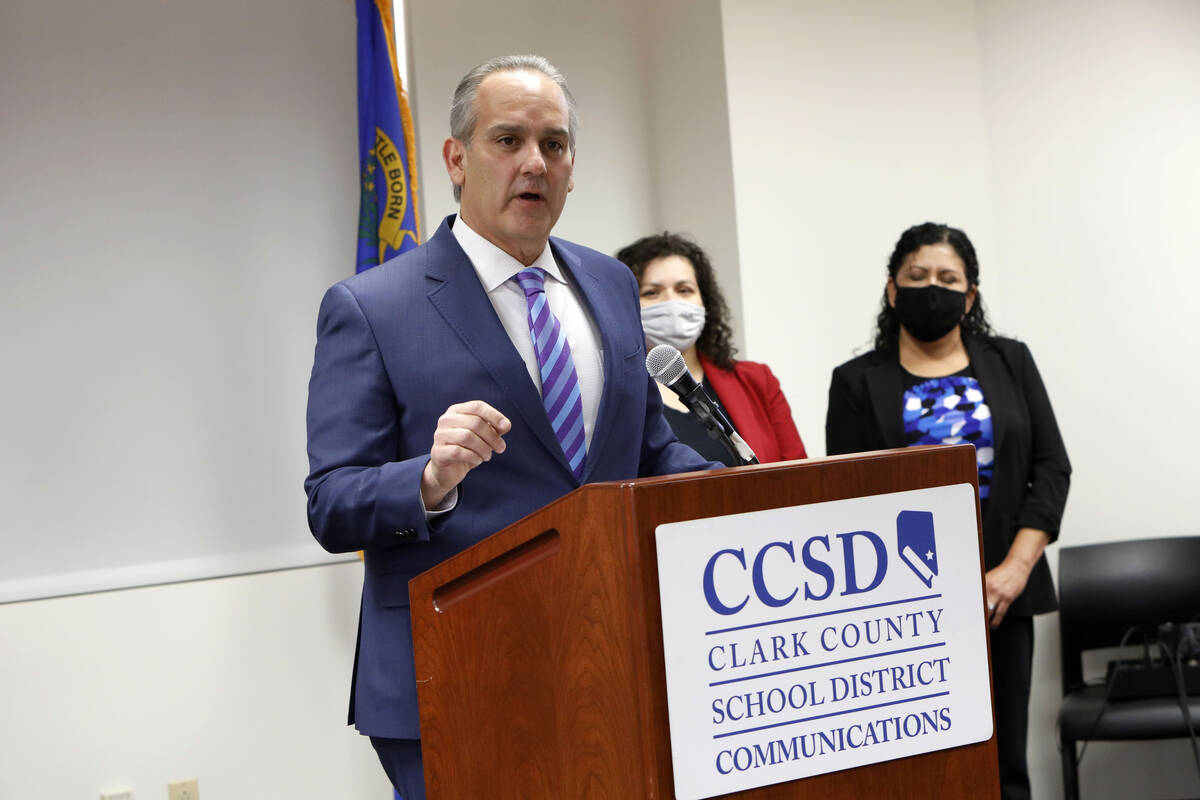VICTOR JOECKS: Proposed CCSD teacher contract won’t help students
If you’ve ever wondered why spending more on education doesn’t necessarily improve student achievement, look at the proposed teacher contract.
Late Friday, the Clark County School District announced it had reached tentative deals with the unions representing teachers and administrators.
The teachers’ new contract includes 3 percent raises this year and next. A 3 percent raise sounds modest — especially given how President Joe Biden’s policies have increased inflation. But that’s only the start of the compensation increases, assuming the Board of Trustees approves it. Teachers will receive step increases on the salary schedule in both years. If teachers meet the conditions under the Professional Growth System, they could advance a column on the salary schedule, too.
The district will also pay more to THT Health, the organization that is supposed to provide teachers with health insurance but couldn’t pay its bills over the summer. Now it’s getting a bailout.
Consider how quickly a 3 percent raise turned into four separate compensation increases. That doesn’t even include the increase in PERS contributions that occurred over the summer.
In total, the package will cost taxpayers more than $300 million over the next two years, according to district CFO Jason Goudie. The district has around 18,000 teachers. That means the average teacher will see his or her compensation go up by more than $8,250 annually. Accounting for when the raises are given out, teacher compensation will likely increase a bit less than that this year and a bit more than that next year.
Those are hefty increases, even for a district anticipating $2.83 billion in general fund revenues for this school year.
That $300 million figure may sound familiar to those who closely followed the Legislature — and if that’s you, we both need a new hobby. At the end of the session, Democrats passed a new tax on mining. “This new tax combined with moving existing net proceeds from the general fund, sends more than $300 million to our K-12 education system,” the district offiials bragged at the time.
The implication is that this new money will finally improve Nevada education. That’s a natural assumption. When you purchase something in a free market — from toothpaste to a car — paying more usually corresponds with higher quality. But in those cases, companies are competing to sell their products. Companies that sell low-performing but expensive products will lower prices, improve their products or go out of business.
Public education is closer to a monopoly than a free market. Most children are stuck in traditional public schools, even if only 4 percent of Black students in those schools test proficient in math. In fact, education bureaucrats use poor performance to pressure elected officials into increasing school spending. But that money rarely goes to things that would help students.
For instance, the district isn’t spending its influx of money on performance bonuses or to incentivize experienced teachers to move to struggling schools. The district is about to spend $300 million to pay the same people more to do the same thing. Why would anyone expect that to help students?
You can’t fix a broken system by throwing money at it. You can, however, make it more expensive. That’s exactly what the district is preparing to do.
Contact him at vjoecks@reviewjournal.com or 702-383-4698. Follow @victorjoecks on Twitter.


















